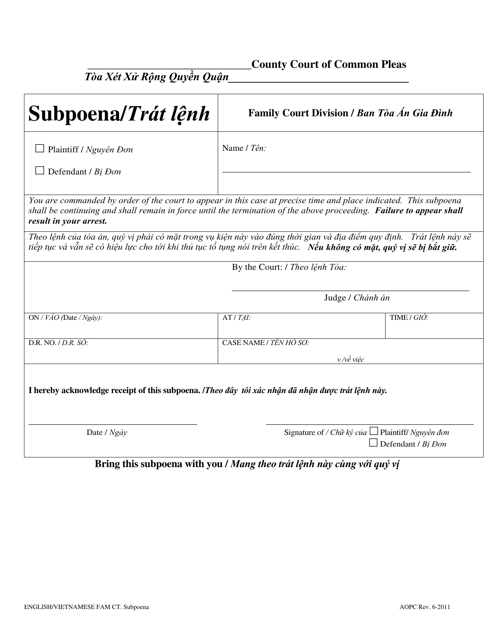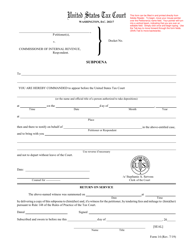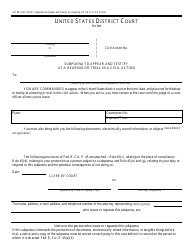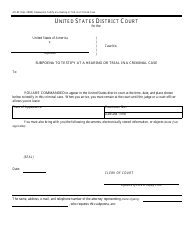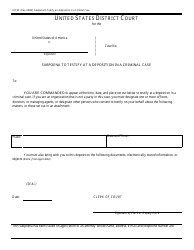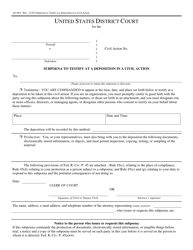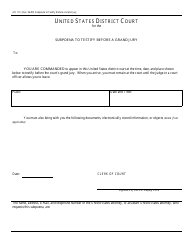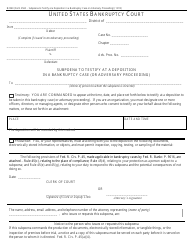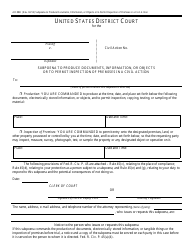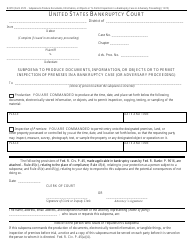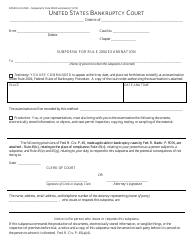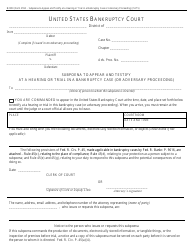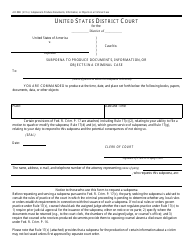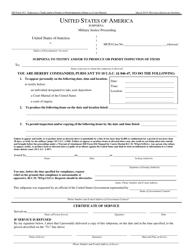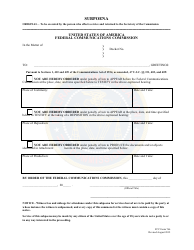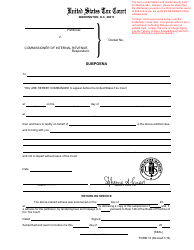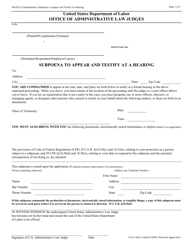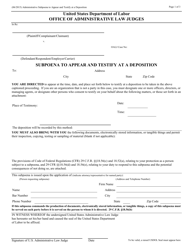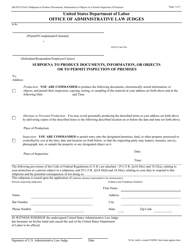Subpoena - Pennsylvania (English / Vietnamese)
Subpoena is a legal document that was released by the Pennsylvania Court of Common Pleas - a government authority operating within Pennsylvania.
FAQ
Q: What is a subpoena?
A: A subpoena is a legal document that compels a person to testify or provide evidence in a court case.
Q: Who can issue a subpoena in Pennsylvania?
A: In Pennsylvania, subpoenas can be issued by a judge, a clerk of court, or an attorney.
Q: Is a subpoena required to appear in court?
A: Yes, if you receive a subpoena, you are required to appear in court.
Q: What happens if I ignore a subpoena?
A: If you ignore a subpoena, you may be held in contempt of court and face penalties such as fines or even jail time.
Q: Can I object to a subpoena?
A: Yes, you can file an objection to a subpoena if you believe it is not valid or imposes an undue burden.
Q: Can I be paid for appearing in court as a witness?
A: Yes, in Pennsylvania, witnesses are entitled to receive compensation for their time and expenses related to appearing in court.
Q: Is a subpoena only for witnesses?
A: No, subpoenas can also be issued to compel the production of documents or other evidence.
Q: What should I do if I receive a subpoena?
A: If you receive a subpoena, you should consult with an attorney to understand your rights and obligations.
Q: Are subpoenas available in languages other than English in Pennsylvania?
A: Yes, in Pennsylvania, subpoenas can be translated into other languages if necessary.
Q: Can I refuse to testify in court?
A: In limited circumstances, you may be able to refuse to testify in court based on protections such as the right against self-incrimination.
Form Details:
- Released on June 1, 2011;
- The latest edition currently provided by the Pennsylvania Court of Common Pleas;
- Ready to use and print;
- Easy to customize;
- Compatible with most PDF-viewing applications;
- Fill out the form in our online filing application.
Download a fillable version of the form by clicking the link below or browse more documents and templates provided by the Pennsylvania Court of Common Pleas.
